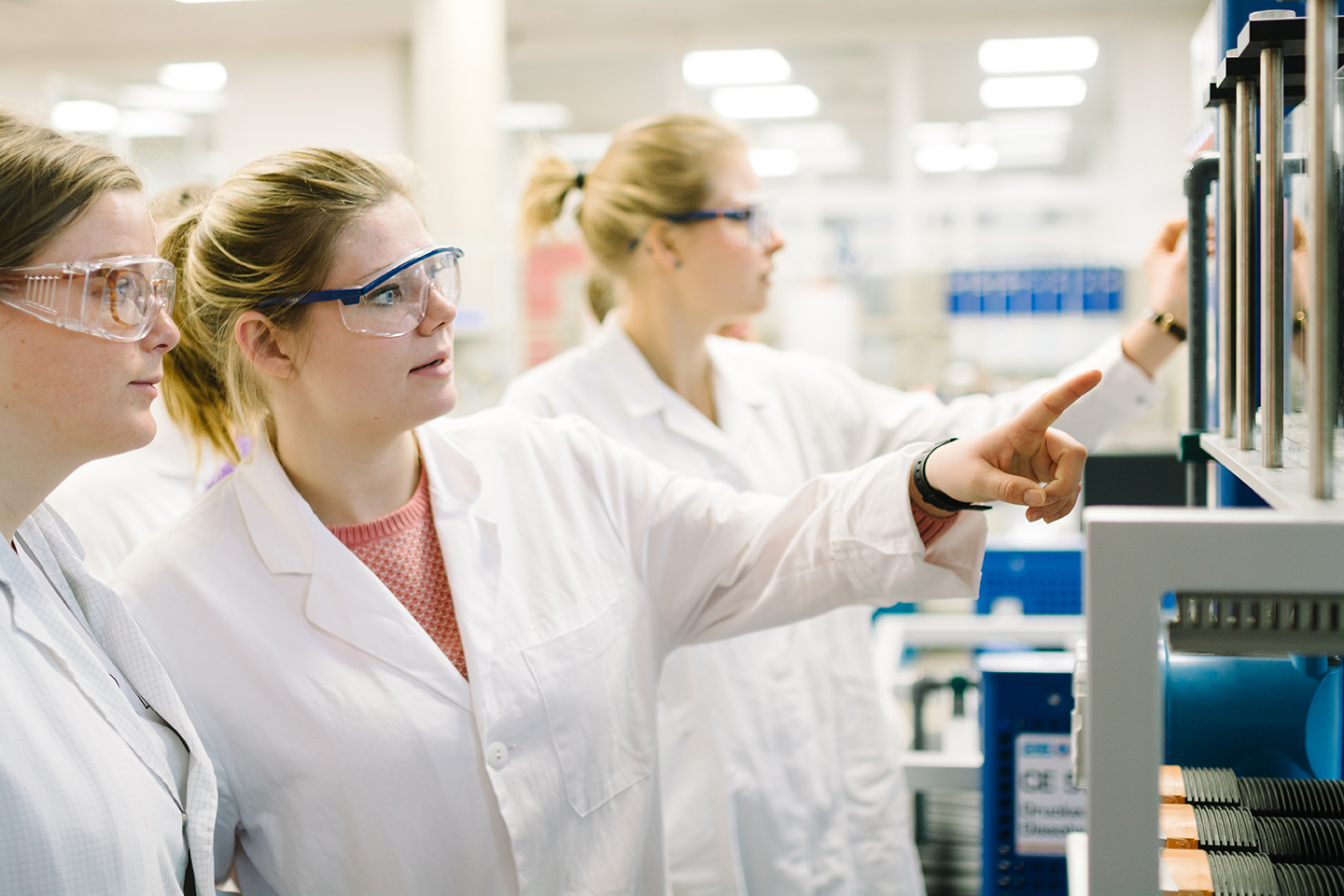
Industrial engineers in energy and environmental egineneering score double. Because they know the challenges of protecting our environment and at the same time ensuring the supply of electricity and heat.
They know how to solve a technical problem and at the same time are familiar with business administration.
That is why industrial engineers are the interface between engineers and business economists and translate each other's technical language. An industrial engineer is always good at communication.
They optimize and design efficient processes, change the big picture and pave the way for a more sustainable future.
Structure of the studies
The business studies course in energy and environmental engineering is divided into four phases:
How to study

The energy, building and environmental technologies are based on a common foundation and pursue the same goal: the sustainable and efficient use of our resources.
Therefore, the Bachelor's degree programmes are interlinked.
Prerequisites
There are a number of prerequisites for taking up an engineering course in energy technology:


